| Listing 1 - 10 of 12 | << page >> |
Sort by
|
Book
Abstract | Keywords | Export | Availability | Bookmark
 Loading...
Loading...Choose an application
- Reference Manager
- EndNote
- RefWorks (Direct export to RefWorks)
"Coastal resources in Tanzania have come under increasing pressure over the past three decades, which has led to a significant decline in the biodiversity and productivity of coastal ecosystems. The livelihoods of coastal communities that directly depend on these resources are consequently under increasing threat and vulnerability. Marine protected areas (MPAs) are one tool for managing coastal and marine resources that have been increasingly used in Tanzania. Promotion of alternative income generating activities (AIGAs) is often a component of MPA management strategies to reduce fishing pressure and address poverty concerns. However, empirical evidence on whether these AIGAs are successful in reducing pressure on fisheries, or their impact on poverty, is scarce and inconclusive. This paper seeks to contribute to this debate by investigating the linkages between household characteristics, MPA activities, and household choice of fishing gear. The empirical analysis is based on household survey data from a sample of villages located along the coast of mainland Tanzania and Zanzibar. The author finds that some aspects of poverty increase the likelihood of using destructive fishing gear. MPAs do not directly affect household choice of fishing gear. However, households participating in AIGAs are less likely to use destructive fishing gear, suggesting that MPA support to these activities in Tanzania has a positive influence on household choice of fishing gear. The author also finds the use of destructive fishing gear is associated with higher consumption levels, whereas participation in AIGAs does not significantly affect household consumption levels. "--World Bank web site.
Coastal zone management --- Environmental degradation --- Fishing industry --- Poverty
Book
Abstract | Keywords | Export | Availability | Bookmark
 Loading...
Loading...Choose an application
- Reference Manager
- EndNote
- RefWorks (Direct export to RefWorks)
"Coastal resources in Tanzania have come under increasing pressure over the past three decades, which has led to a significant decline in the biodiversity and productivity of coastal ecosystems. The livelihoods of coastal communities that directly depend on these resources are consequently under increasing threat and vulnerability. Marine protected areas (MPAs) are one tool for managing coastal and marine resources that have been increasingly used in Tanzania. Promotion of alternative income generating activities (AIGAs) is often a component of MPA management strategies to reduce fishing pressure and address poverty concerns. However, empirical evidence on whether these AIGAs are successful in reducing pressure on fisheries, or their impact on poverty, is scarce and inconclusive. This paper seeks to contribute to this debate by investigating the linkages between household characteristics, MPA activities, and household choice of fishing gear. The empirical analysis is based on household survey data from a sample of villages located along the coast of mainland Tanzania and Zanzibar. The author finds that some aspects of poverty increase the likelihood of using destructive fishing gear. MPAs do not directly affect household choice of fishing gear. However, households participating in AIGAs are less likely to use destructive fishing gear, suggesting that MPA support to these activities in Tanzania has a positive influence on household choice of fishing gear. The author also finds the use of destructive fishing gear is associated with higher consumption levels, whereas participation in AIGAs does not significantly affect household consumption levels. "--World Bank web site.
Coastal zone management --- Environmental degradation --- Fishing industry --- Poverty
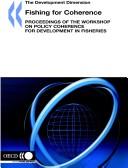
ISBN: 1280607106 9786610607105 9264025308 9264025294 Year: 2006 Publisher: Paris : OECD,
Abstract | Keywords | Export | Availability | Bookmark
 Loading...
Loading...Choose an application
- Reference Manager
- EndNote
- RefWorks (Direct export to RefWorks)
Some 500 million USD are spent annually on fisheries development projects. But fisheries access agreements and trade policies are sometimes applied in ways that dampen developing countries' ability to benefit fully from their rich marine resources. Also, many development projects do not pay sufficient regard to the sustainability issues that are a key for the future of the fishing sector. This publication, a compilation of papers from the Workshop on Policy Coherence for Development in Fisheries, addresses these issues.--Publisher description.
Fisheries -- Developing countries -- Congresses. --- Fisheries. --- Fishery management -- Congresses. --- Fishery management. --- Pesqueri ́as. --- Fishery management --- Fisheries --- Agriculture --- Earth & Environmental Sciences --- Animal Sciences --- Coastal fisheries --- Commercial fisheries --- Commercial fishing industry --- Farms, Fish --- Fish farms --- Fishery industry --- Fishery methods --- Fishing industry --- Freshwater fisheries --- Inland fisheries --- Large-scale fisheries --- Marine fisheries --- Marine recreational fisheries --- Recreational fisheries --- Sea fisheries --- Sea fishing industry --- Sport fisheries --- Aquaculture --- Wildlife utilization --- Fishery sciences --- Fishes --- Fishery policy --- Pêches --- Pêches, Politique des --- Economic aspects --- Aspect économique
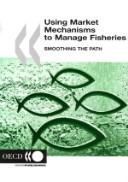
ISBN: 1280607475 9786610607471 926403658X 9264036571 Year: 2006 Publisher: Paris : OECD,
Abstract | Keywords | Export | Availability | Bookmark
 Loading...
Loading...Choose an application
- Reference Manager
- EndNote
- RefWorks (Direct export to RefWorks)
In demystifying the concept of market-like instruments, this study explains how to make better use of market-like instruments in fisheries management by identifying practical steps that can be taken to further their use. The findings of the study are based on a survey of the use of market-like instruments in OECD fisheries in which the key characteristics of these instruments in different countries are identified. It finds that market-like instruments have generally improved the economic efficiency of the sector, and have helped to ensure the sustainability of fish stocks.
Fisheries. --- Fishery management -- OECD countries. --- Fishery management. --- Fishery policy. --- Wildlife conservation. --- Fishery management --- Fisheries --- Agriculture --- Earth & Environmental Sciences --- Animal Sciences --- Coastal fisheries --- Commercial fisheries --- Commercial fishing industry --- Farms, Fish --- Fish farms --- Fishery industry --- Fishery methods --- Fishing industry --- Freshwater fisheries --- Inland fisheries --- Large-scale fisheries --- Marine fisheries --- Marine recreational fisheries --- Recreational fisheries --- Sea fisheries --- Sea fishing industry --- Sport fisheries --- Fish management --- Fisheries management --- Fishery resources --- Management --- Aquaculture --- Wildlife utilization --- Fishery sciences --- Fishes --- Aquatic resources --- Wildlife management --- Fish counting towers --- Overfishing
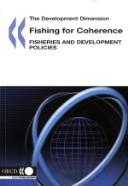
ISBN: 1280606932 9786610606931 926402395X 9264023941 Year: 2006 Publisher: Paris : OECD,
Abstract | Keywords | Export | Availability | Bookmark
 Loading...
Loading...Choose an application
- Reference Manager
- EndNote
- RefWorks (Direct export to RefWorks)
For OECD and non-OECD countries alike, the global fisheries situation poses topical questions of coherence between development and fisheries in a number of policy areas. This publication examines these questions and proposes a framework for in-depth analysis of coherence issues in five main policy areas where fisheries and development policies interact, namely environmental, technology, economic, social, and governance policies. The framework is illustrated with ten concrete country and regional case studies, analysing issues that range from international fishing agreements and the relationship between industrial and artisanal fishing fleets to fisheries trade and development policies, as well as fisheries development and poverty reduction.
Fishery management. --- Fishery management --- Sustainable aquaculture --- Economic development --- Fisheries --- Agriculture --- Earth & Environmental Sciences --- Animal Sciences --- Government policy --- Sustainable aquaculture. --- Government policy. --- Coastal fisheries --- Commercial fisheries --- Commercial fishing industry --- Farms, Fish --- Fish farms --- Fishery industry --- Fishery methods --- Fishing industry --- Freshwater fisheries --- Inland fisheries --- Large-scale fisheries --- Marine fisheries --- Marine recreational fisheries --- Recreational fisheries --- Sea fisheries --- Sea fishing industry --- Sport fisheries --- Development, Economic --- Economic growth --- Growth, Economic --- Fish management --- Fisheries management --- Fishery resources --- Management --- Aquaculture --- Wildlife utilization --- Fishery sciences --- Fishes --- Economic policy --- Economics --- Statics and dynamics (Social sciences) --- Development economics --- Resource curse --- Sustainable agriculture --- Aquatic resources --- Wildlife management --- Fish counting towers --- Overfishing
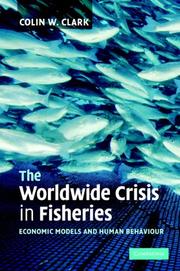
ISBN: 110716270X 1281040231 9786611040239 0511333927 0511334583 0511333242 0511567286 0511617968 0511335164 0521840058 0521549396 Year: 2006 Publisher: Cambridge : Cambridge University Press,
Abstract | Keywords | Export | Availability | Bookmark
 Loading...
Loading...Choose an application
- Reference Manager
- EndNote
- RefWorks (Direct export to RefWorks)
The world's marine fisheries are in trouble, as a direct result of overfishing and the overcapacity of fishing fleets. Despite intensive management efforts, the problems still persist in many areas, resulting in many fisheries being neither sustainable nor profitable. Using bio-economic models of commercial fisheries, this book demonstrates that new management methods, based on individual or community catch quotas, are required to resolve the overfishing problem. Uncertainty about marine systems may be another factor contributing to overfishing. Methods of decision analysis and Bayesian inference are used to discuss risk management and the precautionary principle, arguing that extensive marine reserves may be the best way to protect fisheries, alongside a controlled catch quota system. This book will be of interest to environmental scientists, economists and fisheries managers, providing novel insights into many well-known but poorly understood aspects of fisheries management.
Fisheries --- Fishery management. --- Fishery resources. --- Sustainable fisheries. --- Fisheries productivity, Maintenance of long-term --- Fishery yields, Sustainable --- Long-term fisheries productivity, Maintenance of --- Maintenance of long-term fisheries productivity --- Sustainable fishery yields --- Sustainable aquaculture --- Overfishing --- Fish resources --- Fisheries resources --- Aquatic resources --- Wildlife resources --- Fish management --- Fisheries management --- Fishery resources --- Wildlife management --- Fish counting towers --- Coastal fisheries --- Commercial fisheries --- Commercial fishing industry --- Farms, Fish --- Fish farms --- Fishery industry --- Fishery methods --- Fishing industry --- Freshwater fisheries --- Inland fisheries --- Large-scale fisheries --- Marine fisheries --- Marine recreational fisheries --- Recreational fisheries --- Sea fisheries --- Sea fishing industry --- Sport fisheries --- Aquaculture --- Wildlife utilization --- Fishery sciences --- Fishes --- Economic aspects --- Mathematical models. --- Management --- Life Sciences --- General and Others
Periodical
ISSN: 24353361 Year: 2006 Publisher: Hakodate, Japan : Graduate School of Fisheries Sciences, Hokkaido University,
Abstract | Keywords | Export | Availability | Bookmark
 Loading...
Loading...Choose an application
- Reference Manager
- EndNote
- RefWorks (Direct export to RefWorks)
Fisheries --- Fisheries. --- Japan. --- Coastal fisheries --- Commercial fisheries --- Commercial fishing industry --- Farms, Fish --- Fish farms --- Fishery industry --- Fishery methods --- Fishing industry --- Freshwater fisheries --- Inland fisheries --- Large-scale fisheries --- Marine fisheries --- Marine recreational fisheries --- Recreational fisheries --- Sea fisheries --- Sea fishing industry --- Sport fisheries --- Aquaculture --- Wildlife utilization --- Fishery sciences --- Fishes --- al-Yābān --- Giappone --- Government of Japan --- Iapōnia --- I͡Aponii͡ --- Japam --- Japani --- Japão --- Japon --- Japonia --- Japonsko --- Japonya --- Jih-pen --- Mư̄ang Yīpun --- Nihon --- Nihonkoku --- Nippon --- Nippon-koku --- Nipponkoku --- Prathēt Yīpun --- Riben --- State of Japan --- Yābān --- Yapan --- Yīpun --- Zhāpān
Book
ISBN: 9075230192 9789075230192 Year: 2006 Volume: monografie 6. Publisher: Brussel Vlaams instituut voor het onroerend erfgoed
Abstract | Keywords | Export | Availability | Bookmark
 Loading...
Loading...Choose an application
- Reference Manager
- EndNote
- RefWorks (Direct export to RefWorks)
History of Europe --- Agriculture. Animal husbandry. Hunting. Fishery --- Archeology --- anno 500-1499 --- anno 1500-1799 --- Northsea Region --- Archeologie --- Archéologie --- Colloques --- Colloquia --- Histoire sociale et économique --- Pêche --- Sociaal-economische geschiedenis --- Visserij --- Fisheries --- Fishers --- Pirates --- Excavations (Archaeology) --- Pêches --- Pêcheurs --- Fouilles (Archéologie) --- History --- Social life and customs --- Congresses --- Histoire --- Moeurs et coutumes --- Congrès --- North Sea Region --- Nord, Région de la Mer du --- Antiquities --- Antiquités --- Pêches --- Pêcheurs --- Fouilles (Archéologie) --- Congrès --- Nord, Région de la Mer du --- Antiquités --- Barbary corsairs --- Corsairs --- Freebooters --- Outlaws --- Buccaneers --- Anglers --- Fishermen --- Persons --- Coastal fisheries --- Commercial fisheries --- Commercial fishing industry --- Farms, Fish --- Fish farms --- Fishery industry --- Fishery methods --- Fishing industry --- Freshwater fisheries --- Inland fisheries --- Large-scale fisheries --- Marine fisheries --- Marine recreational fisheries --- Recreational fisheries --- Sea fisheries --- Sea fishing industry --- Sport fisheries --- Aquaculture --- Wildlife utilization --- Fishery sciences --- Fishes --- Social life and customs. --- Sports persons --- Sportspersons
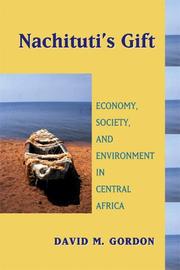
ISBN: 1282269984 9786612269981 0299213633 0299213641 0299213609 9780299213640 9780299213602 9780299213633 Year: 2006 Publisher: Madison, Wis. University of Wisconsin Press
Abstract | Keywords | Export | Availability | Bookmark
 Loading...
Loading...Choose an application
- Reference Manager
- EndNote
- RefWorks (Direct export to RefWorks)
HISTORY --- General --- Fisheries --- Fish trade --- Bemba (African people) --- Regions & Countries - Africa --- History & Archaeology --- Economic aspects --- Economic conditions --- Awemba (African people) --- Babemba (African people) --- Bemba (African tribe) --- Wawemba (African people) --- Fish industry --- Fisheries trade --- Coastal fisheries --- Commercial fisheries --- Commercial fishing industry --- Farms, Fish --- Fish farms --- Fishery industry --- Fishery methods --- Fishing industry --- Freshwater fisheries --- Inland fisheries --- Large-scale fisheries --- Marine fisheries --- Marine recreational fisheries --- Recreational fisheries --- Sea fisheries --- Sea fishing industry --- Sport fisheries --- Zambia --- Pêches --- Poisson (Aliment) --- Bemba (Peuple d'Afrique) --- Luapula River Valley (Zambia and Congo) --- Luapula, Vallée de la (Zambie et Congo) --- Pêches --- Luapula, Vallée de la (Zambie et Congo) --- Bantu-speaking peoples --- Ethnology --- Seafood industry --- Aquaculture --- Wildlife utilization --- Fishery sciences --- Fishes --- #SBIB:39A4 --- #SBIB:39A73 --- Toegepaste antropologie --- Etnografie: Afrika --- Luapula River Valley (Zambia and Zaire) --- Luapula Valley (Zambia and Congo) --- Economic conditions. --- Environmental conditions. --- Social life and customs. --- Economic conditions. Economic development --- Congo --- Ecology --- Aspect économique --- Commerce --- Conditions économiques --- Moeurs et coutumes
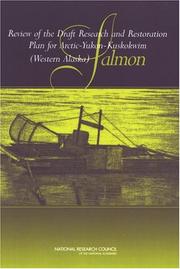
ISBN: 1280349360 9786610349364 0309657393 9780309657396 0309101077 9780309101073 0309181003 Year: 2006 Publisher: Washington, D.C. National Academies Press
Abstract | Keywords | Export | Availability | Bookmark
 Loading...
Loading...Choose an application
- Reference Manager
- EndNote
- RefWorks (Direct export to RefWorks)
Salmon stock management --- Salmon fishing --- Salmon industry --- Fisheries --- Fishes --- Fish --- Pisces --- Aquatic animals --- Vertebrates --- Fishing --- Ichthyology --- Coastal fisheries --- Commercial fisheries --- Commercial fishing industry --- Farms, Fish --- Fish farms --- Fishery industry --- Fishery methods --- Fishing industry --- Freshwater fisheries --- Inland fisheries --- Large-scale fisheries --- Marine fisheries --- Marine recreational fisheries --- Recreational fisheries --- Sea fisheries --- Sea fishing industry --- Sport fisheries --- Aquaculture --- Wildlife utilization --- Fishery sciences --- Fish trade --- Fishery management --- Conservation --- Arctic Coast (Alaska) --- Kuskokwim River Watershed (Alaska) --- Yukon River Watershed (Yukon and Alaska) --- Yukon-Kuskokwim Delta (Alaska) --- Kuskokwim River (Alaska) --- Kuskokwim River Delta (Alaska) --- Yukon River (Yukon and Alaska) --- Yukon River Delta (Alaska) --- Yukon Basin (Yukon and Alaska) --- Yukon River Basin (Yukon and Alaska) --- Yukon River Drainage (Yukon and Alaska) --- Kuskokwim Basin (Alaska) --- Kuskokwim River Basin (Alaska) --- Delta
| Listing 1 - 10 of 12 | << page >> |
Sort by
|

 Search
Search Feedback
Feedback About UniCat
About UniCat  Help
Help News
News